THCA buds, rich in the non-psychoactive cannabinoid THCA, are gaining attention as a potential natural treatment for sleep disturbances. Interacting with the endocannabinoid system, THCA may help regulate sleep patterns by influencing CB1 and CB2 receptors without the psychoactive effects of its decarboxylated form, THC. Initial studies and user experiences suggest that incorporating THCA buds into a nighttime routine can lead to more consistent and restorative sleep, with benefits like longer uninterrupted sleep periods and improved sleep architecture. The anti-inflammatory and pain-relieving properties of THCA could further aid those with sleep issues related to chronic pain. However, it's essential to consult healthcare providers before using THCA buds due to individual differences in response and potential interactions with other substances or medications. Users should ensure the products are of high quality and have been tested for purity to avoid contaminants. Always adhere to legal regulations concerning cannabis derivatives, and start with a low dose to determine the effects on your sleep while considering safety and personalized medical advice for optimal results.
Exploring the therapeutic potential of nature’s nighttime elixir, this article delves into the transformative effects of THCA flower on sleep disorders. Discover how this non-psychoactive cannabinoid not only promises better slumber but also interacts with the body’s endocannabinoid system to promote restful nights. From understanding its benefits to incorporating it into your evening routine, we provide a comprehensive guide to harnessing THCA buds for improved sleep quality. Join us as we navigate the science, safety considerations, and real-life testimonials surrounding this natural remedy, ensuring you are well-informed on the latest research and expert opinions on THCA flower benefits for sleep disorders.
- Unveiling THCA Buds: A Natural Remedy for Sleep Disorders
- The Science Behind THCA and Its Role in Regulating Sleep
- Potential Benefits of THCA Buds for Improving Sleep Quality
- Understanding the Endocannabinoid System and THCA's Interplay
- How to Incorporate THCA Buds into Your Evening Routine
- Dosage and Safety Considerations When Using THCA Buds for Sleep
Unveiling THCA Buds: A Natural Remedy for Sleep Disorders
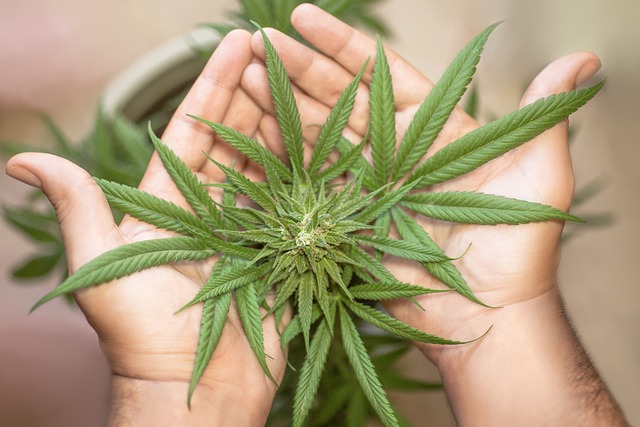
Unveiling THCA buds as a natural remedy for sleep disorders presents an intriguing avenue for those seeking alternative solutions to achieve restful slumber. Tetrahydrocannabinolic acid (THCA), the non-psychoactive precursor to THC found in cannabis plants, has been gaining attention for its potential therapeutic properties, including its effects on sleep regulation. Research suggests that THCA buds may help modulate sleep patterns due to their interaction with the body’s endocannabinoid system, which plays a crucial role in regulating various physiological processes, including sleep. Preclinical studies indicate that THCA could possess sedative effects, potentially aiding individuals who struggle with falling or staying asleep. Its non-psychoactive nature makes it an appealing option for those wary of the mind-altering effects associated with other cannabinoids. As such, incorporating THCA buds into one’s nighttime routine may offer a natural and promising approach to managing sleep disorders, offering the prospect of more consistent and restorative sleep. However, it is advisable to consult healthcare professionals before integrating THCA or any cannabis-derived products into one’s health regimen, as individual responses to these compounds can vary.
The Science Behind THCA and Its Role in Regulating Sleep

Delta-9-tetrahydrocannabinol (THC) is well-known for its psychoactive effects, but before it transforms into this familiar form, THCA—or tetrahydrocannabinolic acid—holds a unique place in the cannabis plant. THCA buds have garnered attention for their potential role in addressing sleep disorders. Scientifically, THCA interacts with the body’s endocannabinoid system through its affinity for both CB1 and CB2 receptors, influencing various physiological functions including sleep regulation. Preliminary research suggests that THCA may possess sedative properties due to its interaction with the endocannabinoid system, which could benefit individuals suffering from sleep disturbances. This is particularly promising for those experiencing issues like insomnia or circadian rhythm disruptions. The therapeutic potential of THCA buds lies in their ability to promote relaxation and reduce anxiety, both of which are conducive to achieving a restful night’s sleep. Users report feelings of calm and well-being without the psychoactive ‘high’ associated with its decarboxylated form, THC. As such, THCA buds for sleep disorders represent an emerging area of interest in natural remedies for sleep regulation.
Potential Benefits of THCA Buds for Improving Sleep Quality
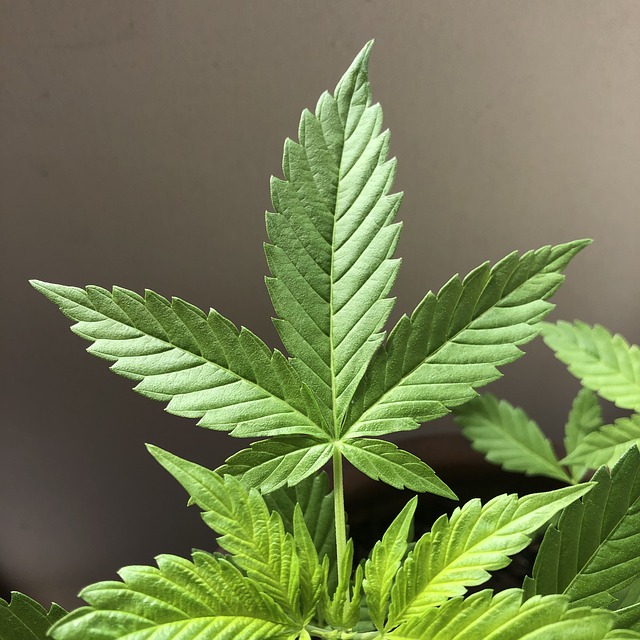
Incorporating THCA buds into one’s nightly routine may offer promising benefits for those suffering from sleep disorders. Tetrahydrocannabinolic acid (THCA), the raw, non-psychoactive form of THC found in cannabis, has been studied for its potential therapeutic properties. Preliminary research suggests that THCA buds can interact with the body’s endocannabinoid system, which plays a crucial role in regulating sleep-wake cycles. Users have reported anecdotal evidence of improved sleep quality, noting longer periods of uninterrupted rest and enhanced overall sleep architecture. These effects are believed to stem from THCA’s ability to modulate neurotransmitter activity, potentially leading to relaxation and drowsiness without the psychoactive side effects associated with its decarboxylated form, THC.
Furthermore, THCA buds for sleep disorders may offer a natural alternative to pharmaceutical sedatives, which can sometimes come with undesirable consequences like dependence or adverse reactions. The anti-inflammatory and analgesic properties of THCA could also contribute to its effectiveness in managing sleep disturbances caused by chronic pain or discomfort. As with any supplement or treatment, individual responses may vary, and it is advisable for potential users to consult with healthcare professionals before incorporating THCA buds into their health regimen. However, the promising anecdotal evidence and scientific research supporting the benefits of THCA make it a compelling option for individuals seeking natural remedies to enhance sleep quality and address sleep disorders.
Understanding the Endocannabinoid System and THCA's Interplay
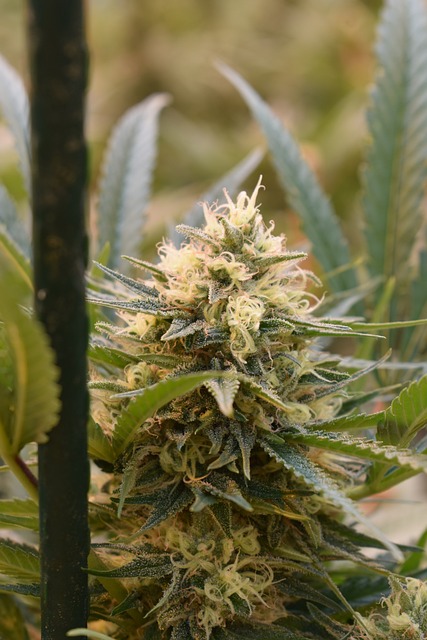
THCA, or tetrahydrocannabinolic acid, is a non-psychoactive cannabinoid found abundantly in raw cannabis plants and is gaining attention for its potential therapeutic properties. The endocannabinoid system (ECS) is a complex cell-signaling system identified in the early 1990s, comprising endocannabinoids, receptors, and enzymes that maintain homeostasis within the body. This system plays a crucial role in regulating various physiological processes, including sleep, appetite, pain sensation, memory, reproduction, and mood.
Research suggests that THCA interacts with the ECS primarily through the CB1 and CB2 receptors. While THC, the decarboxylated form of THCA, is psychoactive and binds strongly to CB1 receptors found predominantly in the brain, THCA itself appears to have a lower affinity for these receptors. Instead, THCA may influence the ECS by modulating the activity of anandamide, an endocannabinoid that shares a similar structure to THC. This modulation can affect various bodily functions and has been studied for its potential benefits in managing sleep disorders. Individuals with sleep disturbances may find that consuming THCA buds, often in the form of cannabis strains high in this cannabinoid, can promote more restful sleep by addressing issues such as insomnia or sleep fragmentation. The precise mechanisms through which THCA exerts its effects are still being elucidated, but its potential for improving sleep quality without psychoactive side effects makes it a subject of increasing interest for those seeking natural remedies for sleep disorders.
How to Incorporate THCA Buds into Your Evening Routine
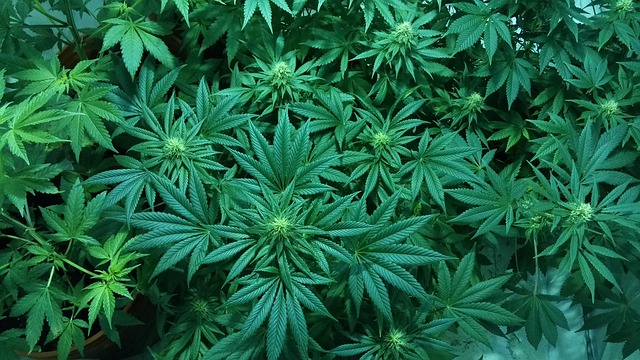
Incorporating THCA buds into your evening routine can be a natural approach to managing sleep disorders. Tetrahydrocannabinolic acid (THCA), which is the raw form of THC found in hemp and cannabis plants, has been studied for its potential therapeutic properties, including its interaction with the body’s endocannabinoid system, which plays a role in regulating sleep. To harness the benefits of THCA buds for sleep disorders, consider infusing them into your evening wind-down ritual. One effective method is to prepare a cup of THCA-rich tea or an herbal tincture, allowing the body to process the compounds as bedtime approaches. The onset of effects from THCA is typically slower than its psychoactive counterpart, THC, making it a gentle option for relaxation and promoting drowsiness without the risk of heightening alertness. Additionally, THCA buds can be vaporized or included in edibles like capsules or gummies; however, dosing should be carefully considered to align with your body’s needs and sleep disorder requirements. It’s advisable to start with a low dose and gradually increase it as needed, while also consulting with a healthcare professional to ensure safe use and compatibility with any other treatments or medications you may be taking.
Before integrating THCA buds into your routine, it’s important to understand the legal status of hemp and cannabis products in your region, as well as their interactions with prescription medications. Preparing THCA-infused topicals like balms or creams can also be a non-psychoactive option for localized relief that may aid in relaxation before bed. Consistency is key when using THCA buds for sleep disorders; maintaining a regular routine can help establish predictable effects over time. Always prioritize quality products sourced from reputable brands, and consider consulting with a knowledgeable healthcare provider or a cannabis specialist to tailor the best approach for your specific needs and to ensure that you’re using these natural remedies safely and effectively.
Dosage and Safety Considerations When Using THCA Buds for Sleep
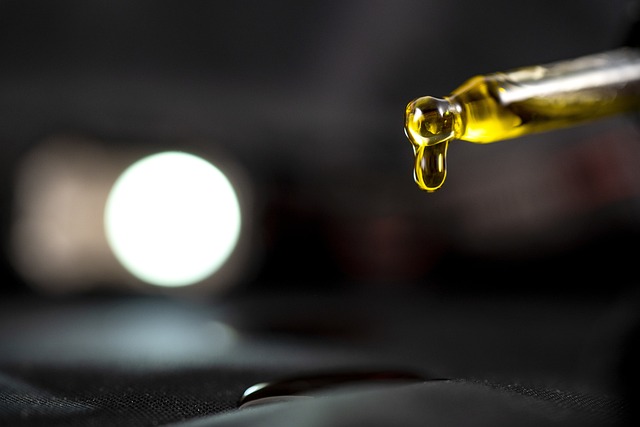
When incorporating THCA buds into a regimen for managing sleep disorders, it is imperative to approach dosage with careful consideration. THCA buds, which contain tetrahydrocannabinolic acid, a non-psychoactive precursor to THC, are often sought after for their potential calming and sedative effects. Users should start with a low dose, as the impact of THCA can vary significantly from person to another. A common suggestion is to begin with a small amount, such as 1-3 grams, and assess its effects over time before considering an increase. This gradual approach allows individuals to pinpoint their optimal dosage for sleep enhancement without overwhelming their endocannabinoid system.
Safety considerations are paramount when using THCA buds for sleep disorders. It is crucial to source high-quality, lab-tested products to avoid contaminants and ensure the accurate concentration of THCA. Additionally, while THCA is non-psychoactive, it is still a powerful compound that can interact with medications or other substances. Therefore, individuals should consult with a healthcare provider before integrating THCA buds into their sleep regimen, especially if they have underlying health conditions or are taking other medications. Adhering to state and federal regulations regarding the use of cannabis derivatives is also essential. By following these guidelines, users can maximize the potential benefits of THCA buds for sleep while minimizing risks associated with misuse or unintended interactions.
THCA buds emerge as a promising natural intervention for individuals grappling with sleep disorders. The scientific research underscores THCA’s potential role in regulating sleep patterns, offering a natural alternative to manage sleep quality. By integrating THCA buds into an evening routine, one can harness the benefits of this cannabinoid within the context of the endocannabinoid system. It is crucial for individuals to consider dosage and safety guidelines when exploring THCA buds as a treatment option. As such, those with sleep disturbances may find solace in the therapeutic properties of THCA buds, contributing positively to their overall well-being.
